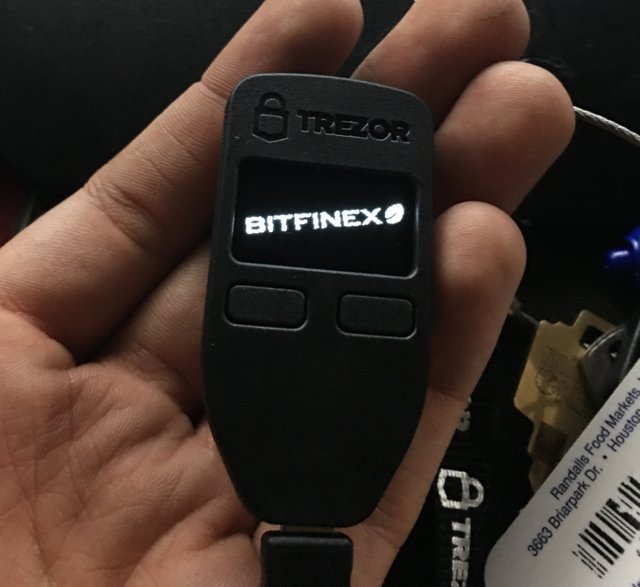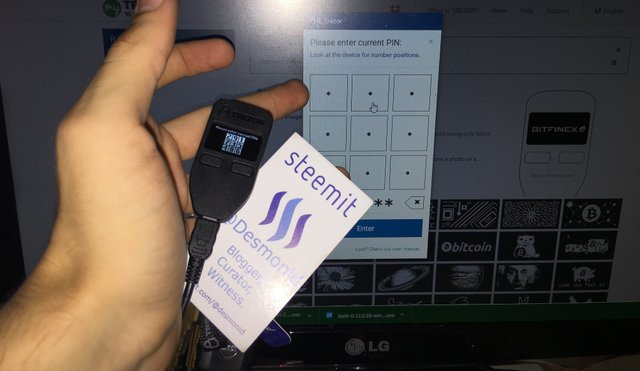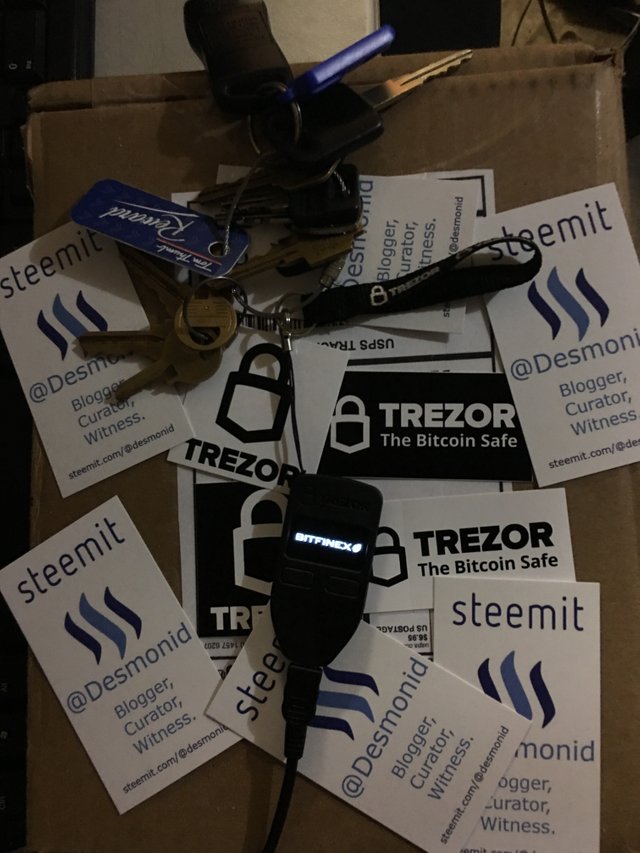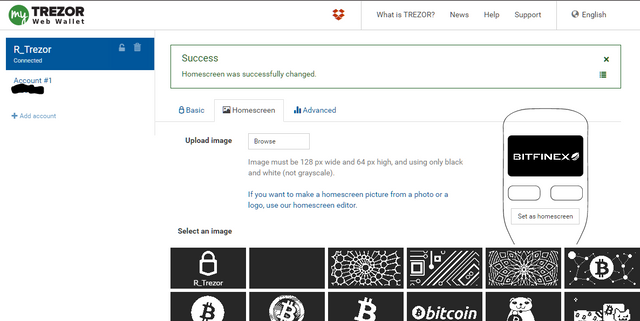Why you need a hardware coin wallet like Trezor, and bonus Bitfinex homescreens...
After the Bitfinex hack, many of us learned the hard way that it isn't safe to keep coins in a web-wallet.
Web-wallets like those on exchanges and other online services are not a secure way to store your coins. A web-wallet's contents can be lost due to the provider hosting the wallet going offline or being subject to a malicious hack. Funds in a web-wallet can also be lost without any problems on the host side if your account is compromised (by phishing, keylogger, or otherwise) or if you forget your credentials.
Software wallets which you host on your own hardware, while arguably more secure than a web-wallet, are also not a good solution for storing large amounts of coin. A software wallet can be lost to data corruption, the machine being physically stolen or damaged, and even potentially be accessed remotely by a hacker.
Which is why you NEED a Trezor

What is Trezor?
"TREZOR is a single purpose device which allows you to make secure Bitcoin transactions. With TREZOR, transactions are completely safe even when initiated on a compromised or vulnerable computer. "
Source
The Trezor acts as a hardware wallet for your coins and provides physical multiple-factor authentication. Upon logging in to the Trezor software on your local machine, you will be prompted to enter a one-time use pin displayed on the device, and you will be required to confirm transactions made with your Trezor by using the confirmation button on the physical Trezor. This makes it impossible for a would-be coin thief to access your wallets without physical access to your Trezor.

Pin Entry in Action
Coins aren't your only valuable asset which Trezor can protect...
Of course we all want to secure our coins, but many of us also have various online accounts which also have substantial value. Trezor offers a solution as it can also be used to store and manage your passwords with the assistance of an extension for Google Chrome. When logging into an account which has been entered into the Trezor password manager, the password is retrieved from the Trezor (not your computer) where it is stored, and the user is prompted to use the physical confirmation button on the Trezor, adding a physical multi-factor authentication process to the various web services you might use. This can be used to secure anything from your email, to your steemit account.
Trezor isn't just an asset, its an accessory.

The people at Trezor must have known I have a weakness for stickers...
From the Trezor software, one can choose from one of the pre-loaded homescreens, some of which are surprisingly whimsical, or provide their own black and white image.

I was dying laughing when I saw the MT.GOX homescreen, it was such a blatant reference to when that exchange was hacked. In that moment, I knew that I had to have a bitfinex background on my Trezor, so I made a black and white Bitfinex logo and applied it...

...and it was a great success :)
Bonus: Bitfinex homescreens for the children...



I have a keepkey and I love it.
What matters is you have a hardware wallet ;)
I had no idea these even existed! Thank you @desmonid! :D
They're actually quite surprisingly fun (at least until the novelty wears off, but even after, a Trezor is still a valuable asset )
Trezor is awesome. And they're supposed to be adapting it for ETH soon. Yay!
Thanks @desmonid!
Relatively new to crypto, and gotta say, I wish I knew about this sooner! Thank you so much for this wonderful bit of info. Much appreciated.
Better to know now and act than to wish you had one when its too late like it is for the BFX victims right now